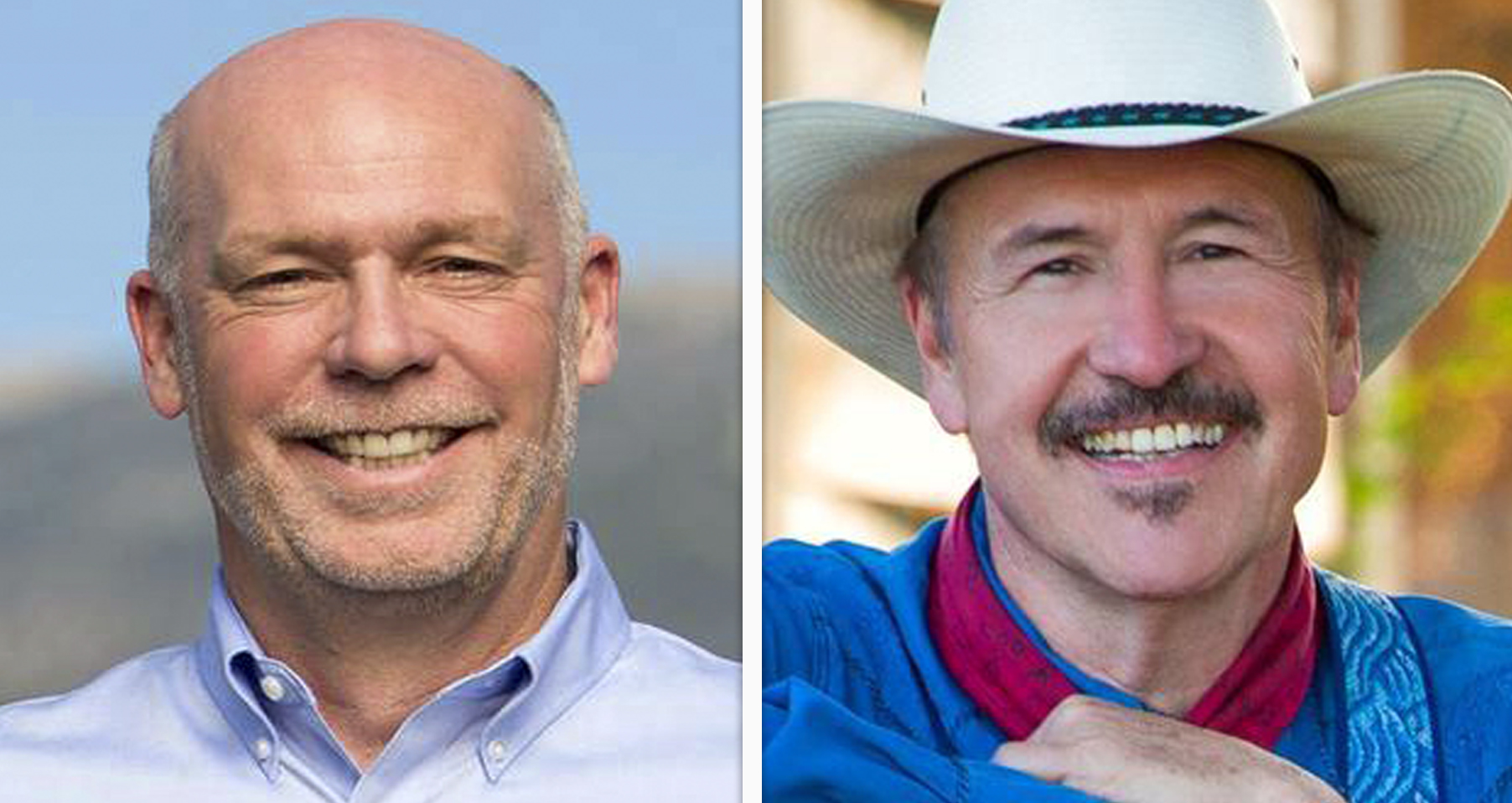Opinion: Montana Special Election Unlikely to Predict Larger Political Trend
But get ready for a barrage of talking points

Sometime after 10 p.m. Thursday in Washington, everyone in politics will feign being an expert on Montana or, as they will call it with an insider’s flourish, Big Sky Country. The returns from the first statewide race of the Trump era will inevitably trigger the type of frenzied over-analysis reserved for special elections at moments of political turmoil.
If the Republicans hang on to the House seat vacated by Interior Secretary Ryan Zinke, the sighs of relief from imperiled GOP incumbents may set off every wind chime in the D.C. area. Greg Gianforte, who ran 47,000 votes behind Donald Trump in a losing 2016 bid for governor, brings to the race two decided advantages — he is rich (he sold his software company for $1.5 billion in 2011) and he is a Republican.
Democrat Rob Quist is the kind of candidate that a cliche-ridden Hollywood screenwriter might have invented — a 69-year-old banjo playing, Bernie Sanders-supporting folk singer who is always photographed in a white cowboy hat. Even the left-wing Nation magazine, in an article by D.D. Guttenplan, admits that Quist is “often awkward on the stump and lacks polish in debates.”
But whatever the results from Montana, it is easy to envision the partisan talking points.
A Gianforte victory would prompt Republicans to chortle that for all the media hype, for all the anti-Trump online fundraising, the Democrats still haven’t won anywhere. A Quist upset, in contrast, would set off Democratic celebrations that the combination of rural populism and toxic Trump represents a formula for a national comeback.
No crystal ball
The truth is — and I would wager that no one on television Thursday night will dare say this — that we don’t know if the 2017 special elections are predictors of larger political trends.
Yes, actual congressional seats are at stake rather than just bragging rights over the latest polling or fundraising numbers. But each race, especially on the Democratic side, brings with it a level of national enthusiasm that is impossible for any party to match in 2018. Quist, for example, has raised $5 million in small contributions.
At best, special elections affect 2018 realities in a roundabout way. Along with Trump’s approval rating (now under 40 percent) and the general sour mood in Washington, these races for vacant seats help shape candidate recruitment and incumbent retirement decisions. It was telling that Rep. Pat Tiberi — after prepping for an Ohio Senate race against Democrat Sherrod Brown for a year — recently decided to run instead for another House term from his safe Columbus-area district.
Only Sean Hannity might dispute the notion that — certainly, right now — congressional Republicans have a Trump problem. But they also have a Paul Ryan problem. Remember that it was not the legislative geniuses in the White House who insisted that health care had to come first on the GOP legislative agenda. Instead, in their zeal to repeal Obamacare, House Republicans lost any sense of legislative strategy.
Mitch McConnell, whose legislative talents should never be underestimated, may win Senate passage of a health care bill this summer. But McConnell’s goal is probably to free Senate Republicans from being blamed for inaction rather than concocting a piece of legislation that would survive scrutiny by the right-wing House Freedom Caucus.
Every Trump crisis slows the pace of legislation in the Senate. Even without a filibuster, does anyone believe that the Senate will rush to confirm the next FBI director on a pro forma vote? In similar fashion, every Trump appointment to the Justice Department will face united Democratic Party opposition. Never again will Trump appointees be rushed through, as Rod Rosenstein was, by a 94-to-6 margin.
Maybe a tax bill will make it through the GOP Congress, especially if the weakened balanced-budget wing of the Republican Party surrenders in the face of sleight-of-hand budgetary tricks. But it is hard to see how GOP incumbents can brag about anything more in 2018 than “We’re not as bad as Trump.”
Family feud
The Democrats have their own internal problems, which could impede their chances of winning back the House in 2018. The factional battles between the Hillary Clinton and Sanders wings of the party should have ebbed with the election of Trump, an anathema to everything that unites Democrats. Instead, the politics of ideological purity have grown increasingly self-destructive.
If ever there should be a safe space for Democrats, it should be California, where the Republicans are reduced to a rump faction. Instead, the California Democratic state convention over the weekend turned into a donnybrook. From news accounts, there would have been about the same amount of booing and angry protests if Dick Cheney had made a surprise appearance.
The danger is that the Democratic Party may lose control of its own primaries in 2018 as the Republicans did during the initial tea party uprising. Where Christine (“I’m not a witch”) O’Donnell cost the Republicans a winnable 2010 Senate seat in Delaware, a left-wing 2018 Democratic counterpart may have to declare, “I am not a Wiccan.”
Already, there is a movement brewing among Democratic activists to make the 2018 election a referendum on impeachment. That’s what the Republicans tried against Bill Clinton in 1998 — and, as a result, lost five House seats in an off year that should have been favorable turf for the GOP.
The problem facing both parties in Congress right now is that they know what they’re against — Obamacare for the Republicans and Trump for the Democrats. But Republicans and Democrats alike are having a hard time figuring out exactly what they’re for.
Roll Call columnist Walter Shapiro is a veteran of Politics Daily, USA Today, Time, Newsweek and The Washington Post. Follow him on Twitter @MrWalterShapiro.





